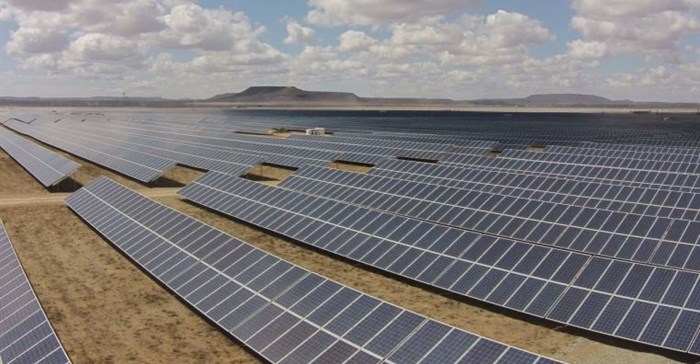
Top stories






More news









Logistics & Transport
Uganda plans new rail link to Tanzania for mineral export boost














The move towards the provision of renewable energy through the South African renewable energy independent power producer procurement programme (REIPPP) has been lauded as a positive reaction to the worst impacts of climate change.

"Renewable energy in general, and solar power specifically, allows for a reduction in the reliance on fossil fuels - while also providing a far superior option in terms of protecting the environment. The production of solar energy has minimal CO² emissions, little water usage, is inexhaustible, and it is safe," says Paschal Phelan, chairman of Solar Capital,
Phelan explains that global electricity produced by solar power has doubled seven times over since 2000. “Part of the reason for this is that solar is not a fuel, but a technology. Owing to economies of scale and increasing efficiency, prices of solar technology and supply continue to fall, as does the price of batteries for energy storage. As a result, the need for fossil fuels is falling internationally. It is only developing countries like South Africa that are still adding coal to the energy mix, more as a result of a rapid demand for further energy supply.”
He adds that not only is solar energy readily and freely available, but the cost of solar technology has come down substantially in the last few years. “Internationally, the price has reduced as a result of technological innovation, the manufacturing learning rate, economies of scale and further competition.”
Phelan also points out that solar farms are commercially viable facilities funded by local banks and foreign direct investment and, unlike Eskom, do not need government funding and guarantees. “It needs to be a priority in South Africa that we continue the investment in this source of abundantly free, green, sustainable energy.”
“Investing in solar power makes sense. It is the way the world is moving and South Africa is fast becoming a leading force in renewable energy programmes,” he says.
“Solar power not only needs to be a priority locally in South Africa, but also the world. With increased pressures to reverse the effects of climate change, it is imperative the we focus our efforts on developing and improving renewable energy sources,” concludes Phelan.
As the lead member of one of the preferred bidders in the REIPPP, Solar Capital was given the opportunity to develop the largest solar farm in the Africa, the Middle East and the southern hemisphere which was launched in De Aar, Northern Cape in March 2016.